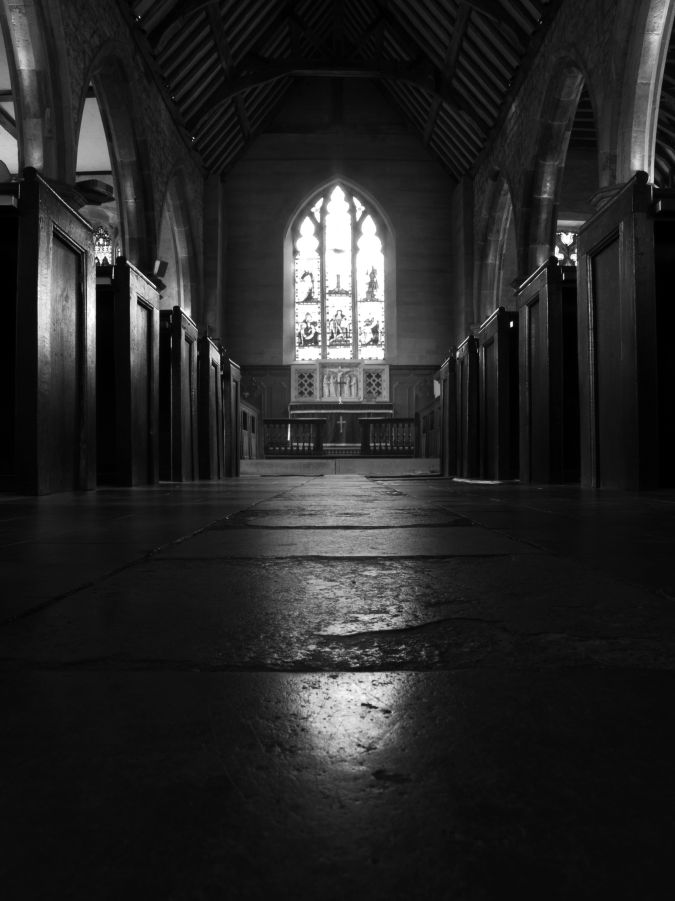Last week during my interview on the Nick Givas Radio Show, the host, himself a conservative Catholic, asserted that the Obama administration has offended American Catholics by mandating that health insurance plans cover contraception, and now has a duty to placate them by making whatever legislative changes they demand. I only had time for a brief response to that, so I want to expand on it today.
Now, I’ll agree that the Catholic hierarchy – the Vatican, the U.S. bishops, the presidents of Catholic universities and other such religious institutions – have asserted that requiring employee health insurance plans to cover contraception is a violation of their religious freedom. (Note: I agree that they’ve claimed this. I don’t agree that it’s actually a violation of their First Amendment rights, for the obvious reason that the religious beliefs of an employer don’t confer a right to dictate his employees’ access to health care. But that’s a topic for another post.)
However, this argument deceptively conflates this small, unrepresentative group of men with the feelings of American Catholics in general. There are, at most, a few hundred or thousand men who control the church as an institution and who are the driving force behind these lawsuits (there’s a total of 441 active or retired bishops in the United States), whereas there are almost 70 million self-identified American Catholics. How does this far larger group of people feel about contraception, abortion, same-sex marriage and all the other modern advances that the bishops rage against?
We can start with this widely cited 2011 study from Guttmacher, which found that 98% of Catholic women have ever used a contraceptive method other than NFP, in defiance of the church’s decrees. Granted, this total would include any woman who’s ever had sex using a condom, even once. But that fact should offer the church little comfort: the same study found that, among women who are currently sexually active and not attempting to conceive, 87% of Catholics are using contraceptive methods other than NFP. (If you’re wondering how Catholic apologists try to deal with this fact, consider this response, which huffed that the survey was of women aged between 15 and 44, “so it could say nothing about women between 45 and 100”. Something tells me that birth control isn’t quite as much of a concern for women between 45 and 100.)
These overwhelming totals, which are identical to the numbers in the population at large, show that lay Catholics are near-unanimous in their rejection of the church hierarchy’s teachings which ban all forms of birth control. And they’re willing to say so openly: according to Gallup, 82% of Catholics say that contraceptive use is “morally acceptable”. As I wrote in 2012:
All the bishops’ loud and unanimous insistence that not using birth control is essential to Catholicism has done nothing to budge this consensus. Seldom in the history of any church has any doctrine been taught so fiercely and been obeyed by so few.
How about abortion? The Catholic church hierarchy is so loud and fervent in its opposition to abortion, you’d think their viewpoint must surely have trickled down to lay Catholics. But you’d be wrong. Another Guttmacher study, this one conducted in the mid-1990s, found that Catholic women have abortions at a higher rate than the rest of the population. Specifically, based on a survey of about 10,000 women who had abortions, it found that “Catholic women have an abortion rate 29% higher than Protestant women”. An article on Beliefnet calls it “The Catholic Abortion Paradox“. And again, as with contraception, lay Catholic support for choice is readily visible in opinion polls. 55% of Catholics and 63% of white Catholics oppose overturning Roe v. Wade.
Although same-sex marriage isn’t part of the current batch of Obamacare lawsuits, it’s another issue where the church hierarchy and the public diverge. Officials in the Catholic hierarchy are often heard to assert that greater legal recognition and support for same-sex unions tramples on their religious freedom. But according to a poll from March of last year, American Catholics support same-sex marriage rights, 54 percent to 38 percent. (This is a turnaround from as recently as 2008, when those numbers were reversed.)
Last but not least, we come to the sticking point, the issue that’s motivated such a blizzard of lawsuits: whether or not employers should be allowed to opt out of providing any health care to employees that offends the employer’s religious beliefs. And here again, the bishops espouse a position that’s soundly rejected by their own flock:
58% of all Catholics agree employers should be required to provide their employees with health care plans that cover contraception… a majority of voters, including a majority of Catholics, don’t believe Catholic hospitals and universities should be exempted from providing the benefit.
In citing all these facts, I’m not saying that Catholics are uniquely or unusually progressive. Rather, their opinions mirror the opinions of the population as a whole, which is just what you’d expect: American Catholicism as a group is much too large and diverse to impose any kind of ideological homogeneity on it. It’s the tiny handful of Catholic hierarchs, and their apologists, who are out of step with everyone else and who remain stubbornly stuck in the past, refusing to give up archaic doctrines that are now widely recognized as immoral and rejected by everyone else.
Of course, this raises the question of why the church hierarchs are so determined to forge ahead with a course of action that’s widely rejected by their own membership – but then, we know the answer to that. A better question is whether a day will come when lay Catholics realize that their money in the collection plate is being used to support political causes which most of them strongly disagree with – and if and when that day comes, what they’ll decide to do about it.
